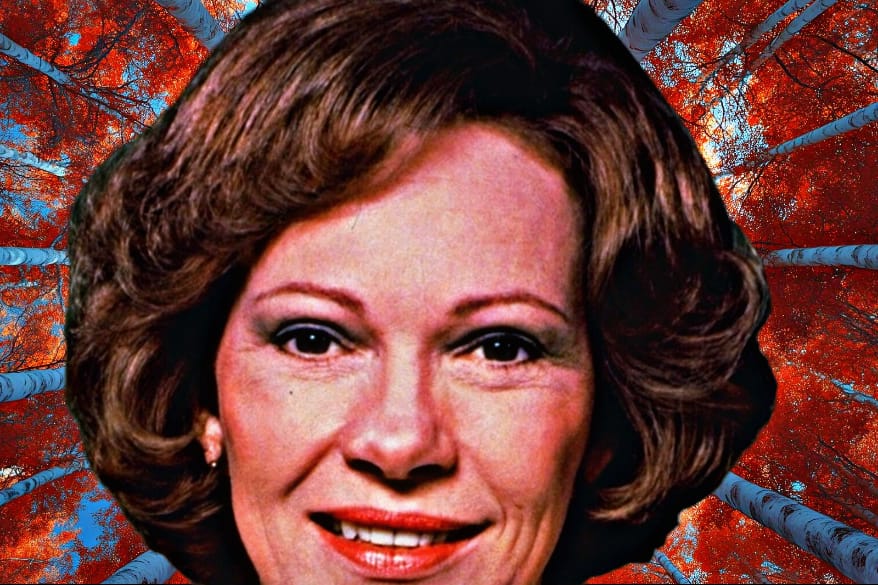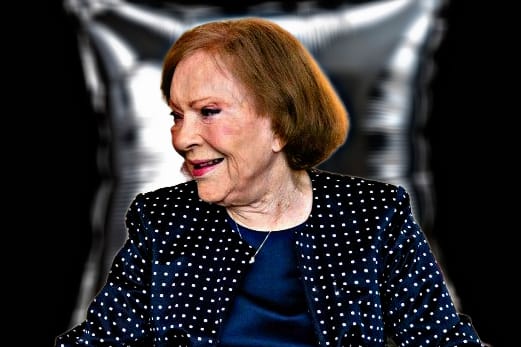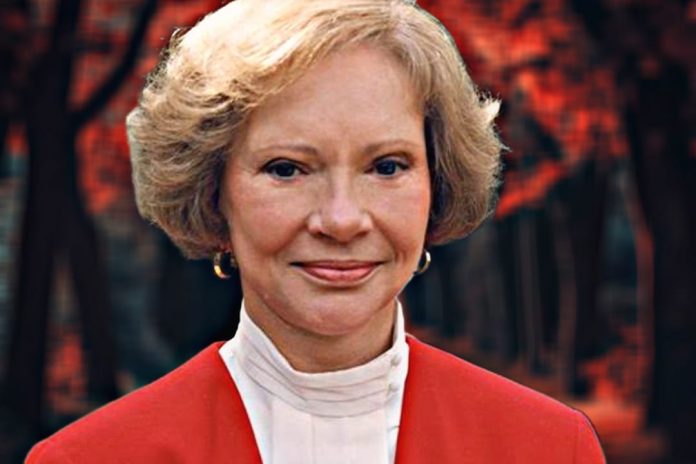Rosalynn Carter is a figure whose legacy transcends her role as First Lady of the United States. Born in the small town of Plains, Georgia, she became an influential advocate, leader, and humanitarian throughout her life. As the wife of President Jimmy Carter, she redefined the role of First Lady by taking on substantive political causes, particularly in mental health advocacy and women’s rights. Beyond her time in the White House, Rosalynn Carter’s dedication to public service continued through her work with the Carter Center, a nonprofit organization focused on global health, peace, and human rights.
This article will explore Rosalynn Carter early life, her work as First Lady, her advocacy for mental health reform, her continued activism post-White House, and her overall impact on American society. Additionally, we will explore how she broke barriers, reshaped the role of First Lady, and became a role model for future generations of women in leadership.
Early Life and Background
Rosalynn Carter was born Rosalynn Smith on August 18, 1927, in Plains, Georgia, a small rural town that would later become famous as the home of her husband, Jimmy Carter. Rosalynn’s family was working-class, and she grew up with strong values of hard work, community, and social responsibility. Her father was a successful local businessman, and her mother was a teacher, who instilled in Rosalynn a love of learning and social consciousness. From an early age, Rosalynn was encouraged to pursue her goals and support others.
She attended Georgia Southwestern College, where she met Jimmy Carter in 1945. The couple married on July 7, 1946, just before Rosalynn graduated with a degree in education. As a young woman, Rosalynn was an active participant in both local and national organizations, but her primary focus was on family and supporting her husband’s career. Jimmy Carter’s run for governor of Georgia and subsequent presidential campaign would set the stage for Rosalynn Carter’s future activism and political involvement.
Rosalynn Carter as First Lady

When Jimmy Carter won the presidency in 1976, Rosalynn Carter stepped into the role of First Lady with a clear sense of purpose. She did not adhere to the traditional, ceremonial role that many First Ladies before her had embraced. Instead, Rosalynn took a highly active and visible role in the administration, using her position to champion causes she believed were important for the country.
Advocacy for Mental Health Reform
One of Rosalynn Carter most significant contributions as First Lady was her advocacy for mental health reform. At a time when mental health issues were stigmatized and largely ignored, Rosalynn took on the cause with a personal and political commitment that would define her public service career.
Her interest in mental health reform began long before she entered the White House. In 1970, while living in Georgia, Rosalynn began working with the Georgia Mental Health Association, where she learned about the conditions faced by people with mental illnesses and the challenges of accessing quality care. As First Lady, she used her platform to raise awareness about mental health issues, becoming one of the most vocal advocates for mental health reform in the nation.
She focused on improving care for the mentally ill, reducing stigma, and advocating for greater federal funding for mental health services. Rosalynn Carter’s efforts culminated in the passage of the Mental Health Systems Act of 1980, a landmark piece of legislation that sought to improve mental health services across the country. While the law was ultimately repealed in the 1980s, Rosalynn’s role in bringing national attention to mental health issues remains one of her most significant achievements.
Women’s Rights and Gender Equality
In addition to mental health reform, Rosalynn Carter was a staunch advocate for women’s rights and gender equality. As First Lady, she pushed for legislation and initiatives that addressed women’s issues, including equal pay, reproductive rights, and workplace discrimination. She worked closely with organizations like the National Organization for Women (NOW) to promote policies that would benefit women and girls.
Rosalynn was also instrumental in establishing programs to support women who were victims of domestic violence and to promote access to educational opportunities for women. Her commitment to women’s rights and gender equality was a defining feature of her time in the White House, and it influenced her post-First Lady activism as well.
Promoting Volunteerism and Community Engagement
Rosalynn Carter vision for the First Lady’s role also included promoting volunteerism and social engagement. She launched several initiatives to encourage American citizens to give back to their communities, one of which was the National Volunteers in Service to America (VISTA) program. Through this initiative, Rosalynn sought to inspire Americans to become more involved in social justice causes and community development.
Her efforts helped to reshape how the country viewed volunteer work, emphasizing the importance of civic engagement and collective responsibility. By actively promoting these values, Rosalynn was able to help foster a sense of community service that continues to resonate with Americans today.
The Carter Center and Post-White House Advocacy

After leaving the White House in 1981, Rosalynn Carter did not step away from public service. Instead, she continued her advocacy and humanitarian work, primarily through the Carter Center, which she co-founded with her husband, Jimmy Carter, in 1982. The Carter Center is a nonprofit organization that has been at the forefront of efforts to promote global peace, health, and human rights.
Mental Health and Global Health Initiatives
As part of her ongoing advocacy for mental health reform, Rosalynn Carter became involved in international efforts to improve mental health care, particularly in developing nations. She worked with the World Health Organization (WHO) to promote mental health care globally, particularly in countries with limited resources.
One of her key initiatives involved supporting the development of mental health policies that could be implemented in low-income countries, aiming to reduce the stigma surrounding mental illness and provide better access to care. Her leadership in the Carter Center’s Mental Health Program helped establish the organization as a leading force in global mental health advocacy.
Beyond mental health, Rosalynn Carter also worked on other global health issues, including combating preventable diseases like Guinea worm disease. The Carter Center has been instrumental in reducing the number of cases of Guinea worm disease worldwide, and Rosalynn’s support for these global health efforts is part of her broader commitment to social justice.
The Campaign for Women and Children

In addition to her work on mental health and global health, Rosalynn Carter has also been deeply involved in efforts to improve the lives of women and children around the world. Through the Carter Center’s Women’s Health and Rights Program, Rosalynn has focused on issues such as maternal health, child nutrition, and access to education for girls.
She has been particularly passionate about advocating for the rights of women and children in developing nations, working to ensure that women have access to healthcare, education, and economic opportunities. Her work in this area has made her a leading voice in the global movement for women’s empowerment and children’s rights.
Rosalynn Carter’s Legacy and Influence
Rosalynn Carter legacy as First Lady is one of profound impact. She broke the mold for what it meant to be a First Lady, choosing to prioritize issues like mental health, women’s rights, and volunteerism over traditional ceremonial roles. Her advocacy for mental health reform was groundbreaking and laid the foundation for future discussions on mental health policy.
Through the Carter Center, Rosalynn continued her commitment to improving global health and human rights, and she remains a tireless advocate for social justice. Her legacy has inspired countless individuals, particularly women, to pursue careers in public service and advocacy.
Conclusion
Rosalynn Carter life has been a testament to the power of advocacy and public service. From her early years as a wife and mother in Georgia to her groundbreaking work as First Lady, Rosalynn Carter has devoted her life to making the world a better place. Her work in mental health reform, women’s rights, and global health has made a lasting impact on both American society and the international community. As a First Lady, a mother, and a humanitarian, Rosalynn Carter set an example for future generations of women in leadership.

